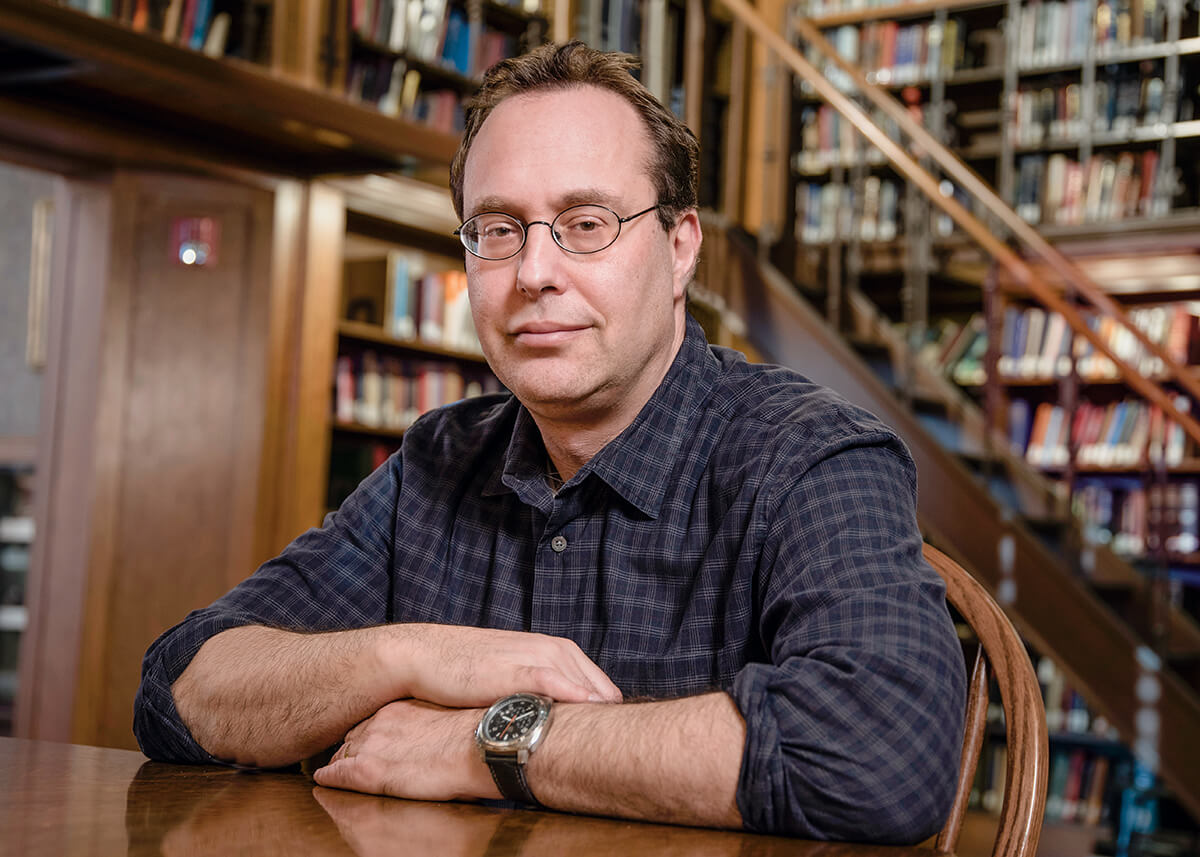lens
Depression Everywhere
Historian examines prevalence of mental distress across time and worldwide
 PHOTO: MIKE SANDSHistorian Jonathan Sadowsky believes depression is both a physical condition and a psychic state.
PHOTO: MIKE SANDSHistorian Jonathan Sadowsky believes depression is both a physical condition and a psychic state.When Case Western Reserve’s Jonathan Sadowsky was writing The Empire of Depression: A New History, he dreamed it might be successful enough to warrant translation to another language. To his surprise, the book has been translated into French, Spanish, Chinese, Russian and Turkish—and an edition in Arabic is on the way. It’s an engrossing examination of how different cultures have defined and treated depression over time and across the globe. Sadowsky, PhD, the Theodore J. Castele Professor and chair of the Department of History, believes depression is both a physical condition and psychic state. The experience of depression is timeless and universal, from the ancient Greeks’ concept of melancholia to the Punjabi idiom that translates as “sinking heart.” Sadowsky recently spoke to Think about why diagnoses are on the rise and why he’s so fascinated by the condition.
Why write a book about depression?We all experience sadness, dejection and loss of interest in things. At what point do these feelings become an illness? It’s interesting to track how our ideas about that have changed over time. Do we think of this as a mind problem or a body problem?
How much did you already know and how much was new to you?I went into the writing overconfident. I thought, I’ve been teaching this for years, so I know all about it, but there were some surprises. For example, I think the binary of whether depression is a mental problem versus a brain problem is relatively new. I believe we run into trouble if we try to narrow down our approach to just one theory. I am fully convinced that things like trauma, political persecution, the social context and poverty matter deeply in terms of whether someone develops depression. But to conclude that biology isn’t involved at all is fallacious.
Depression diagnoses are on the rise worldwide. How do you account for that?It doesn’t matter where you live, your society is probably having an increase in diagnoses. Whether that means we’re actually seeing more depression, or we’re calling more things depression, is hard to tease out. But I tend to look at this in pragmatic terms. If people can be helped to feel better because they’re on an antidepressant or in psychotherapy, what their diagnosis is and whether they have a disease is less important than if their suffering has been alleviated.
What’s the opposite of depression?[It’s] not boundless happiness. People who aren’t experiencing clinical depression are able to access a full range of emotions in response to the vicissitudes of life. They can find joy, feel sadness and loss and use their creative capacities. Bad things happen, and that’s part of life. If you’re not depressed, you’re able to enjoy the things that are good.





